I could send mail using the following code
E:\Python\django-test\LYYDownloaderServer>python manage.py shell
Python 3.5.2 (v3.5.2:4def2a2901a5, Jun 25 2016, 22:01:18) [MSC v.1900 32 bit (In
tel)] on win32
Type "help", "copyright", "credits" or "license" for more information.
(InteractiveConsole)
>>> from django.core.mail import send_mail
>>>
>>> send_mail(
... 'Subject here',
... 'Here is the message.',
... 'redstone-cold@163.com',
... ['2281570025@qq.com'],
... fail_silently=False,
... )
1
>>>
According to the doc:
When DEBUG is False, Django will email the users listed in the ADMINS setting whenever your code raises an unhandled exception and results in an internal server error (HTTP status code 500). This gives the administrators immediate notification of any errors. The ADMINS will get a description of the error, a complete Python traceback, and details about the HTTP request that caused the error.
but in my case, Django doesn't email reporting an internal server error (HTTP status code 500)

what's the problem? please help fix the problem
settings.py
"""
Django settings for LYYDownloaderServer project.
Generated by 'django-admin startproject' using Django 1.9.1.
For more information on this file, see
https://docs.djangoproject.com/en/1.9/topics/settings/
For the full list of settings and their values, see
https://docs.djangoproject.com/en/1.9/ref/settings/
"""
import os
ADMINS = [('Philip', 'r234327894@163.com'), ('Philip2', '768799875@qq.com')]
EMAIL_HOST = 'smtp.163.com' # 'localhost'#'smtp.139.com'
# EMAIL_PORT = 25
# EMAIL_USE_TLS = True
EMAIL_HOST_USER = 'r234327894@163.com' # '13529123633@139.com'
EMAIL_HOST_PASSWORD = '******'
# DEFAULT_FROM_EMAIL = 'r234327894@163.com'
# Build paths inside the project like this: os.path.join(BASE_DIR, ...)
BASE_DIR = os.path.dirname(os.path.dirname(os.path.abspath(__file__)))
# Quick-start development settings - unsuitable for production
# See https://docs.djangoproject.com/en/1.9/howto/deployment/checklist/
# SECURITY WARNING: keep the secret key used in production secret!
SECRET_KEY = 's4(z8qzt$=x(2t(ok5bb58_!u==+x97t0vpa=*8bb_68baekkh'
# SECURITY WARNING: don't run with debug turned on in production!
DEBUG = False
ALLOWED_HOSTS = ['127.0.0.1']#, '.0letter.com'
# Application definition
INSTALLED_APPS = [
'VideoParser.apps.VideoparserConfig',
'FileHost.apps.FilehostConfig',
'django.contrib.admin',
'django.contrib.auth',
'django.contrib.contenttypes',
'django.contrib.sessions',
'django.contrib.messages',
'django.contrib.staticfiles',
]
MIDDLEWARE_CLASSES = [
'django.middleware.common.BrokenLinkEmailsMiddleware',
'django.middleware.security.SecurityMiddleware',
'django.contrib.sessions.middleware.SessionMiddleware',
'django.middleware.common.CommonMiddleware',
'django.middleware.csrf.CsrfViewMiddleware',
'django.contrib.auth.middleware.AuthenticationMiddleware',
'django.contrib.auth.middleware.SessionAuthenticationMiddleware',
'django.contrib.messages.middleware.MessageMiddleware',
'django.middleware.clickjacking.XFrameOptionsMiddleware',
]
ROOT_URLCONF = 'LYYDownloaderServer.urls'
TEMPLATES = [
{
'BACKEND': 'django.template.backends.django.DjangoTemplates',
'DIRS': [],
'APP_DIRS': True,
'OPTIONS': {
'context_processors': [
'django.template.context_processors.debug',
'django.template.context_processors.request',
'django.contrib.auth.context_processors.auth',
'django.contrib.messages.context_processors.messages',
],
},
},
]
WSGI_APPLICATION = 'LYYDownloaderServer.wsgi.application'
# Database
# https://docs.djangoproject.com/en/1.9/ref/settings/#databases
DATABASES = {
'default': {
'ENGINE': 'django.db.backends.sqlite3',
'NAME': os.path.join(BASE_DIR, 'db.sqlite3'),
}
}
# Password validation
# https://docs.djangoproject.com/en/1.9/ref/settings/#auth-password-validators
AUTH_PASSWORD_VALIDATORS = [
{
'NAME': 'django.contrib.auth.password_validation.UserAttributeSimilarityValidator',
},
{
'NAME': 'django.contrib.auth.password_validation.MinimumLengthValidator',
},
{
'NAME': 'django.contrib.auth.password_validation.CommonPasswordValidator',
},
{
'NAME': 'django.contrib.auth.password_validation.NumericPasswordValidator',
},
]
# Internationalization
# https://docs.djangoproject.com/en/1.9/topics/i18n/
LANGUAGE_CODE = 'en-us'
TIME_ZONE = 'UTC'
USE_I18N = True
USE_L10N = True
USE_TZ = True
# Static files (CSS, JavaScript, Images)
# https://docs.djangoproject.com/en/1.9/howto/static-files/
STATIC_URL = '/static/'
the start of views.py
from django.http import JsonResponse, HttpResponse
import logging
import m3u8
import os
from VideoParser.parsers.CommonParsers import *
import urllib.parse
import hashlib
from datetime import datetime, timedelta, date
from django.views.decorators.csrf import csrf_exempt
from django.db import IntegrityError
from VideoParser.models import *
from importlib import import_module
# print('-------------views --------')
FILES_DIR = 'files'
# specialHostName2module = {'56': 'v56'}
logging.basicConfig(format='%(asctime)s %(message)s', datefmt='%m/%d %I:%M:%S %p', level=logging.ERROR, handlers=[logging.handlers.RotatingFileHandler(filename=os.path.join(FILES_DIR, 'LYYDownloaderServer.log'), maxBytes=1024 * 1024, backupCount=1)])
...